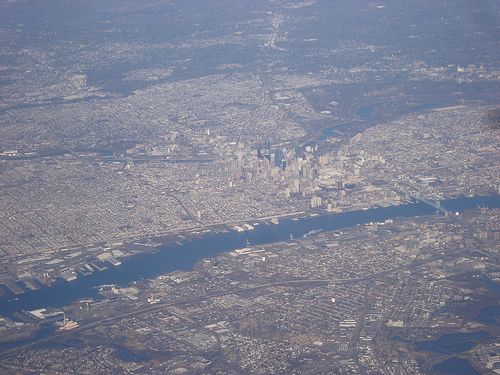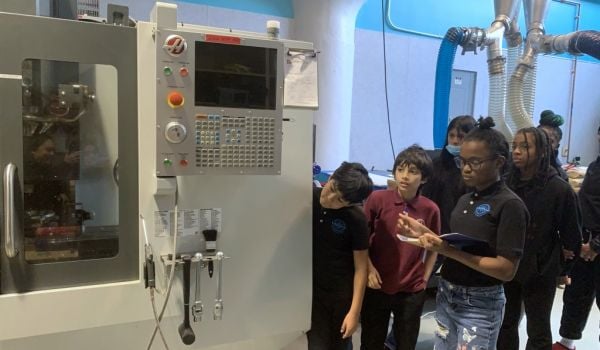The big education news this week in the Delaware Valley is the Philadelphia Public School District’s announcement that it will close 40 of its 250 schools in September 2013.
Authorized by the five-member School Reform Commission, the plan has decreed that students in closing schools — about 15 percent of total enrollment — will be served by an expanding charter network, known as Renaissance Schools. The central office, already cut to about 650 staffers, will shrink to 200 people, and all schools will be overseen by the largely autonomous “Achievement Networks” led by educators and non-profit organizations.
Meanwhile, across the Delaware River in Camden, N.J., under the auspices of the recently enacted Urban Hope Act, up to four charter schools — called “Renaissance Schools” — will be built to potentially serve about 15 percent of Camden’s 13,000 students.
Philadelphia’s edict has ignited a firestorm of protests and allegations. In comparison, Camden is a relative oasis of forbearance and support.
So here’s a question you don’t hear often: What did New Jersey do right in implementing a controversial plan? Why is Philadelphia’s community enraged by the expansion of charter schools, while Camden’s stakeholders are sanguine?
There are two lessons to draw from this marked difference: Focus on student achievement, not economics, and collaborate with the teachers’ union.
In Philadelphia, the conversation is about money, not children. Almost every newspaper story features this year’s $218 million gap between revenues and expenses, the intention to cut $156 million in personnel costs off of a $1.2 billion baseline (when the current union contracts run out in 2013), and a projected annual $33 million in savings when the 40 schools shut down.
The chief recovery officer, Thomas E. Knudsen, explained, “We face perhaps the greatest financial challenges ever to confront our schools. We simply have less money to spend on our public schools than they cost to operate in their current form.”
New Jersey, however, has kept the focus on student achievement. Even a casual bystander is aware of the chronic failures of poor urban districts like Camden, where the N.J. Department of Education database lists the high school graduation rate as 42 percent (about the same as Philadelphia) and most kids fail the high school standardized tests.
Our waiver from the feds from the strictures of No Child Left Behind divides all New Jersey schools into four categories based on student achievement. New Jersey’s 70 worst schools are labeled “Priority Schools.” Twenty-three of Camden’s 26 schools are on that list. Can one really make a cogent argument for the status quo?
Philadelphia’s School Reform Commission seems to have blown right by any pretense at collaboration with staff members. Jerry Jordan, president of the Philadelphia Federation of Teachers, declaimed, “This is a cynical, right-wing and market-driven plan to privatize public education, to force thousands of economically disadvantaged families to select from an under-funded hodgepodge of EMO- and charter-company-run schools, and to convert thousands of professional and family-sustaining positions into low-paying, high-turnover jobs.”
Just call us warm and fuzzy. In New Jersey’s first draft of the Urban Hope Act, which permits new charter schools not just in Camden but in Newark and Trenton as well, teachers lost their bargaining and tenure rights. But after some back-room negotiations, a revised bill surfaced that — you guessed it — guarantees bargaining and tenure rights for teachers. Voila: Union buy-in. (At least among New Jersey Education Association members. Grumbled Joseph Del Grosso, president of the Newark Teachers Union, an AFT affiliate, “It was an NJEA deal. They blatantly sold Newark out.”)
Now NJEA President Barbara Keshishian describes the Urban Hope Act as “an innovative effort to improve educational outcomes for children in some of our most challenging educational settings. NJEA supports this legislation because it allows for innovation while providing meaningful public accountability. We appreciate the opportunity to work with the sponsors of this legislation. This bill ensures that employees in the proposed Renaissance schools will have all of the rights of other public school employees, which will help create a climate of innovation and creativity in the classroom.”
No so difficult, right? Talk about kids. Pacify unions.
Of course, nothing’s that simple. Philadelphia’s scale dwarfs Camden’s. The school funding mechanism in Pennsylvania places far more burden on poor districts than in New Jersey, where the Supreme Court has circumscribed state aid distribution regardless of economic conditions. Philadelphia School District is under state control but Camden retains governance (although some have argued that it shouldn’t, and it does have a state-appointed Fiscal Monitor).
Yes, we got something right. Not a renaissance, but still something to celebrate.


_(1)_600_350_80_s_c1.JPG)







